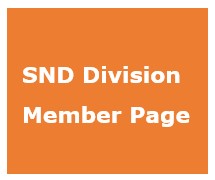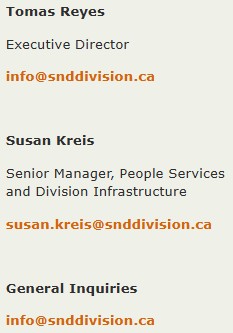
The PCN Clinical Counselling program was designed as a primary care support for patients with mild to moderate mental health or substance use challenges. Family Physicians practicing in Surrey-North Delta can refer any adult patients whom they feel would benefit from a short-term counselling intervention and who don’t have access to counselling through other means. Common reasons for referral include postpartum depression, life transitions, grief, and more. Learn more about the program here.
Andrew Saunderson is the Clinical Coordinator for the PCN MHSU Clinical Counselling program. He also offers secondary support to the PCN Social Work program. These are some of his thoughts about the PCN vision in SND and the Clinical Counselling program in particular.
What drew you to the Surrey-North Delta PCN?
For me, what is most exciting about being a part of the PCN is an opportunity to work further upstream within a health-care system that is predominantly downstream and reactionary. It provides the unique opportunity to address issues before an individual is in crisis, and especially to prioritize the social determinants of health while continuing to offer exceptional biomedical care to our patients.
I find working in Surrey particularly engaging, having previously worked at Surrey Memorial Hospital. To me, the bigger the metropolis, the more complex and diverse its population and individual issues, and that complexity and diversity is what makes the work so engaging and meaningful.
I was really excited to learn about the Clinical Counselling program in Surrey-North Delta, including its vision and goals, as well as the depth and breadth of the PCN. To be a part of something new -- to be a part of the development of programs, resources, team culture, systems, and workflows -- is especially exciting.
What inspires you about your role?
One of my mentors is Dr. Paul Farmer. He's both an anthropologist and a physician who started the organization called Partners In Health.
Essentially, he practiced from a public health model and through an equity lens. What I love is that he prioritized what he called 'accompaniment' -- how can we accompany the patients that we serve? How can we better come alongside them on their health journeys?
What I’ve observed is that people's experience in primary care doesn't always feel like accompaniment – it can too often feel like a brief transactional intervention. And that's not the fault of the physicians -- that's the fault of our system.
With the PCN model, and the patient medical home model, we’re attempting to provide more accompaniment for our patients so that they don't feel alone, especially on their chronic health journeys.
We can look at the system and point fingers, but this is the system we’ve all been given and we’re doing the best we can. So let’s work together to improve the system.
How do you see the PCN Clinical Counselling program fitting within the PCN vision of patient-centered care and supportiveness for Family Physicians?
In his book When the Body Says No, Dr. Gabor Mate highlights the significant relationship between our mental health (specifically stress and trauma) and our physical health, and he says that we're naive to separate the two.
However, I’ve observed that we far too often create these siloed systems where our Family Physicians take care of our physical health and the MHSU services take care of our mental health and substance use issues. With the PCN, we're trying to break down health-care silos and offer whole-person care by having mental health and substance use counsellors embedded within the clinic.
While the PCN team may not physically be within our Family Physicians’ clinics, doctors are referring to us as an internal part of their team. That team-based care helps us not only to remain patient-centred, but to support each other with the stresses that come with our roles: the physician now doesn't have to feel singularly liable for the care of that patient, and neither does the counsellor, because they're working together.
So it becomes a model that really prioritizes that patient-centered care and allows the physician who may not have the time or resources to address the whole person because of the system and how it's set up, to now feel more supported.
What are your goals for the PCN Clinical Counselling program?
One of the primary goals for our team is to create a team culture that embeds peer support and peer supervision in all we do.
We do hard work and we do heart work, and we know that heart work often leads to burnout. So we’re creating a team culture that has the necessary supports in place to prevent, manage and support team member burnout, when it happens.
One thing that we’ve done is to develop an acuity scale so that we have a tool to help both our Social Workers and Clinical Counsellors to manage their caseloads with an understanding of the risk and priority level of each referral we receive.
Another one of our goals is to empower our clients to be independent and self-reliant outside of the walls of the clinic. When clients walk into our office, we remind them that the most important and sustainable change happens when they leave.
I often say that our role as Social Workers and Clinical Counsellors is to put ourselves out of a job because we've sufficiently equipped and supported our clients to be able to navigate systems and better manage their own mental health and substance use challenges. That's the gift we're striving to offer them.
If there is one thing you want Family Physicians to know, what would it be?
I believe Family Physicians are already aware of this, but it's important to know that we welcome and encourage referrals for patients who don't necessarily have a formal diagnosis.
A patient doesn't have to be diagnosed with a mood disorder, a substance use disorder, or an anxiety disorder to qualify for our services -- it could be very much situational, like postpartum depression, for example.
Those patients are an ideal fit for our program because we're hoping to prevent the formal diagnoses if at all possible. We all have moments in our lives where stress is so exponentially high that there's an identifiable opportunity to receive extra support.
The PHQ-9, GAD-7, and other assessment tools, as useful as they are, can be subjective based on the day and the moment in which they're completed. So I would encourage Family Physicians not to wait for a crisis or formal diagnosis to arise, but to offer the invitation for their patients to be able to engage in a counselling experience that is ultimately not only going to improve their mental health and their substance use challenges, but most importantly, is going to improve their overall health.



